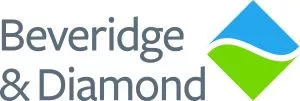On August 17, 2021, the New York State Department of Environmental Conservation (NYSDEC) will hold two public hearings (2:00 PM and 6:00 PM EDT) regarding the Department's proposed regulations revising the State's Chemical Bulk Storage (CBS) and Petroleum Bulk Storage (PBS) Programs. Regulated entities, building owners, and facility operators are on notice that written comments on the Proposed Rules are due to the Department by 5:00 PM on August 23, 2021.
CBS Program Updates
NYSDEC is proposing to consolidate the existing CBS Program at 6 NYCRR Parts 596, 598 and 599, into a single new Part 598 (Hazardous Substance Bulk Storage) and to amend Part 597 (Hazardous Substances Identification, Release Prohibition, and Release Reporting). According to the Department, the Proposed Rules are principally intended to harmonize existing CBS Program requirements with the federal requirements found in 40 CFR Part 280, which were revised in 2015. The practical effect will be to add to the State's CBS Program the more stringent federal requirements, including but certainly not limited to spill prevention and release detection equipment testing; overfill prevention equipment inspection; containment sump testing for sumps used for piping interstitial monitoring; and walkthrough inspections, among others.
The Department is often criticized for drafting regulations that inadvertently create ambiguity or conflict. To that end, the Proposed Rules will harmonize the CBS Program's spill and reporting requirements between Part 597 and 598. Specifically, the spill and release reporting requirements in the existing Part 597.4 have been copied into the proposed Part 598 instead of only being referenced (something that practitioners should appreciate). The usage of the terms "release" and "spill" will also be updated to clarify the difference between the two, which will mirror the usage in 40 CFR 280 and the PBS Program's regulations. The Department noted that the aim of this update is to better instruct regulated facilities on how to respond to spills (i.e., investigation) as compared to releases (i.e., corrective action). Proposed changes to the CBS Program will require a suspected spill to be reported to the Department's Spill Hotline within 2 hours of discovery, the same timeframe required for actual spills and releases. This is consistent with the federal requirements and the PBS Program's rules. The proposed changes do not change the entities responsible for reporting spills and releases.
PBS Program Updates
The Proposed Rules will also amend the existing PBS Program at 6 NYCRR Part 613 (Petroleum Bulk Storage Regulations). Similar to the CBS Program updates, the Department aims to harmonize existing PBS Program requirements with the federal requirements found in 40 CFR Parts 280 and 302. However, unlike the proposed updates to the CBS Program, the PBS Program updates call for major technical revisions that practitioners and regulated entities should be familiar with. The Department, for example, will update numerous definitions that will necessarily change how regulated facilities operate. The Proposed Rules also impose new technical requirements regarding leak detection methods, and mirror the more stringent federal requirements concerning new testing/monitoring/inspection for fill port catch basins, containment sumps, overfill prevention equipment, and leak detection equipment associated with tank systems subject to Subpart 613-2.
The Proposed Rules will also require new financial responsibility for owners/operators of facilities with storage capacity of more than 50,000 gallons. According to the Department, these revisions to Subpart 613-8 will ensure that tank owners/operators have the necessary financial means to remediate any spills that occur at their facilities and address resulting environmental impacts or third-party claims caused by the spills. In practice, these new rules will require that tank owners demonstrate financial responsibility (ranging from $500,000 to $2 million) for taking corrective action and for compensating third parties for bodily injury and property damages caused by spills. Financial responsibility can be demonstrated via several mechanisms including self-insurance, a guarantee, insurance coverage, and a surety bond, among others.
Notably, the Proposed Rules seek to clarify requirements with respect to spills and releases under the PBS Program. Here, the Department noted there has been confusion among regulated entities with respect to who is responsible for ensuring that no spills/overfills occur during petroleum deliveries, resulting in delayed responses that exacerbate the environmental impacts of spills. As a result, the Department will clarify that operators are responsible for transfer activities when on premises or when in control of the delivery and carriers are responsible for the transfer otherwise.
Additionally, the Proposed Rules seek to better inform the public on their responsibilities when petroleum spills occur (an area where past changes to regulations have created confusion). To that end, the Department will slightly revise the reporting/investigation sections of Part 613 by enumerating persons responsible for spill reporting. Notably, some suspected spills (for example, those that flow into secondary containment but do not reach the environment) will now be considered "non-reportable" based on new criteria incorporated from the revised federal rules.
Regulated facilities and operators should closely monitor these programmatic updates and consult with counsel with respect to new obligations. NYSDEC's facility and records inspections will likely incorporate the final revisions soon after their passage, so it's important to anticipate how the changes will affect specific facilities. Ideally, harmonization of the state and federal rules should make compliance with overlapping requirements easier, but a careful review of NYSDEC's final rules will be necessary to understand site-specific issues.
Originally published August 11, 2021
The content of this article is intended to provide a general guide to the subject matter. Specialist advice should be sought about your specific circumstances.



